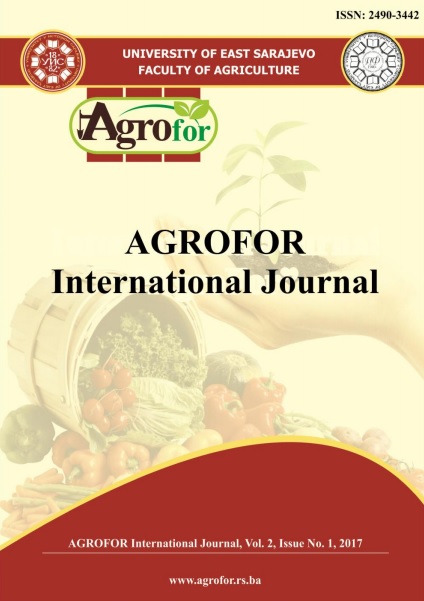INFLUENCE OF AGROCHEMICAL REHABILITATION ON THE HEAVY METAL MIGRATION TO THE WATER
DOI:
https://doi.org/10.7251/AGRENG1701083MAbstract
Soil plays the main role in the sustaining life of Earth ecosystems –it is the
fundamental foundation of agriculture resources, food security, economy and
environmental quality. The heavy metal pollution has been increasing in
agricultural soils worldwide. For example, Cu is widely used as a pesticide against
fungal and bacterial diseases in crops or as a contaminant in organic amendments,
or for irrigation as pig manure or sewage sludge. Soil and water pollution have the
great impact on food safety and to human health: polluted soils have direct health
risks, and secondary risk is connected to contamination of water supplies. The
articlepresents the lysimetric experiment with the chemical composition results.
This exploratory study aims to evaluate the influence of agrochemical rehabilitation
on the heavy metal migration to the water. The chemical composition of intra
soil water has shown that contaminated black soil has a high absorption capacity of
heavy metals. The bulk of heavy metal brought about in a form of water-soluble
salts wasabsorbedand converted by soil colloids of podzolized chernozeminto
relatively stable compositions. Results of the analytical research showed that
organic and organic-mineral systems, where phosphates were used in the average
volume of 60 kg of Р2О5per hectare a year, reduced intake of cadmium in the
subsurface water. Mineral systems also impeded migration of zinc and copper to
the ground water. On the contrary, high doses of superphosphate in the fertilizer
system increased the leaching of Cd, Pb and Cu to the infiltration waters.

